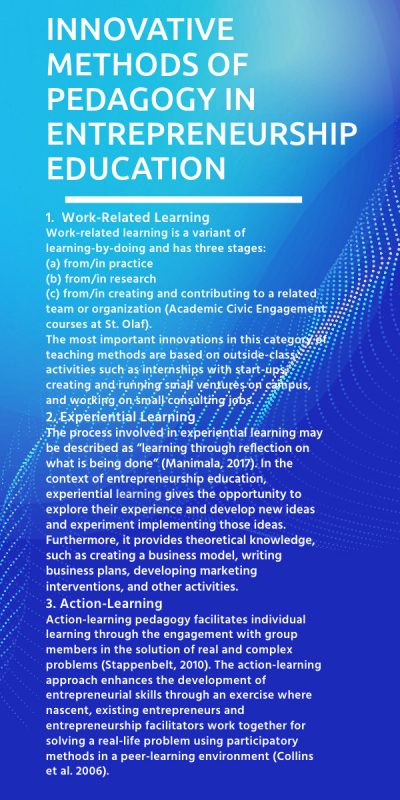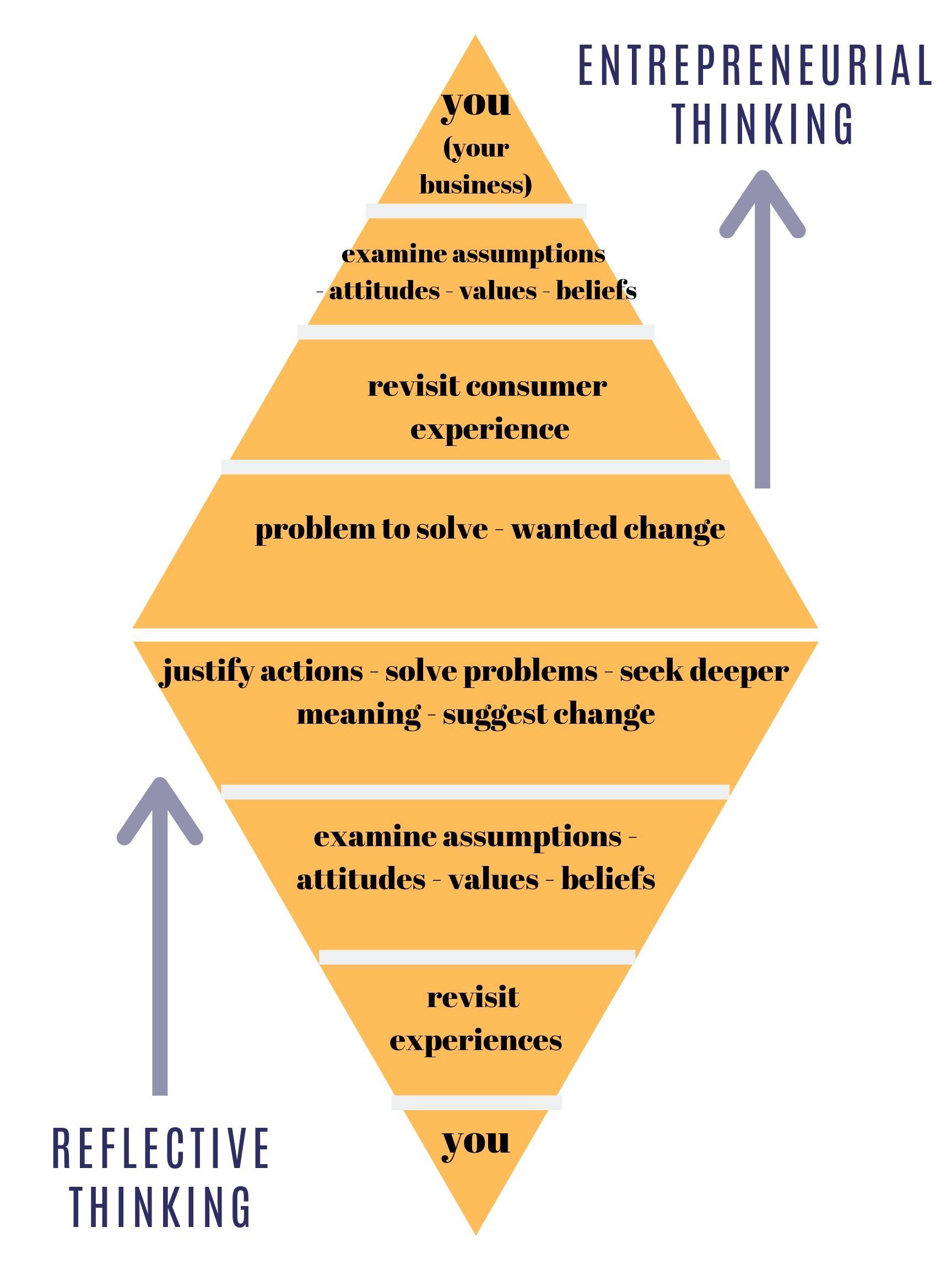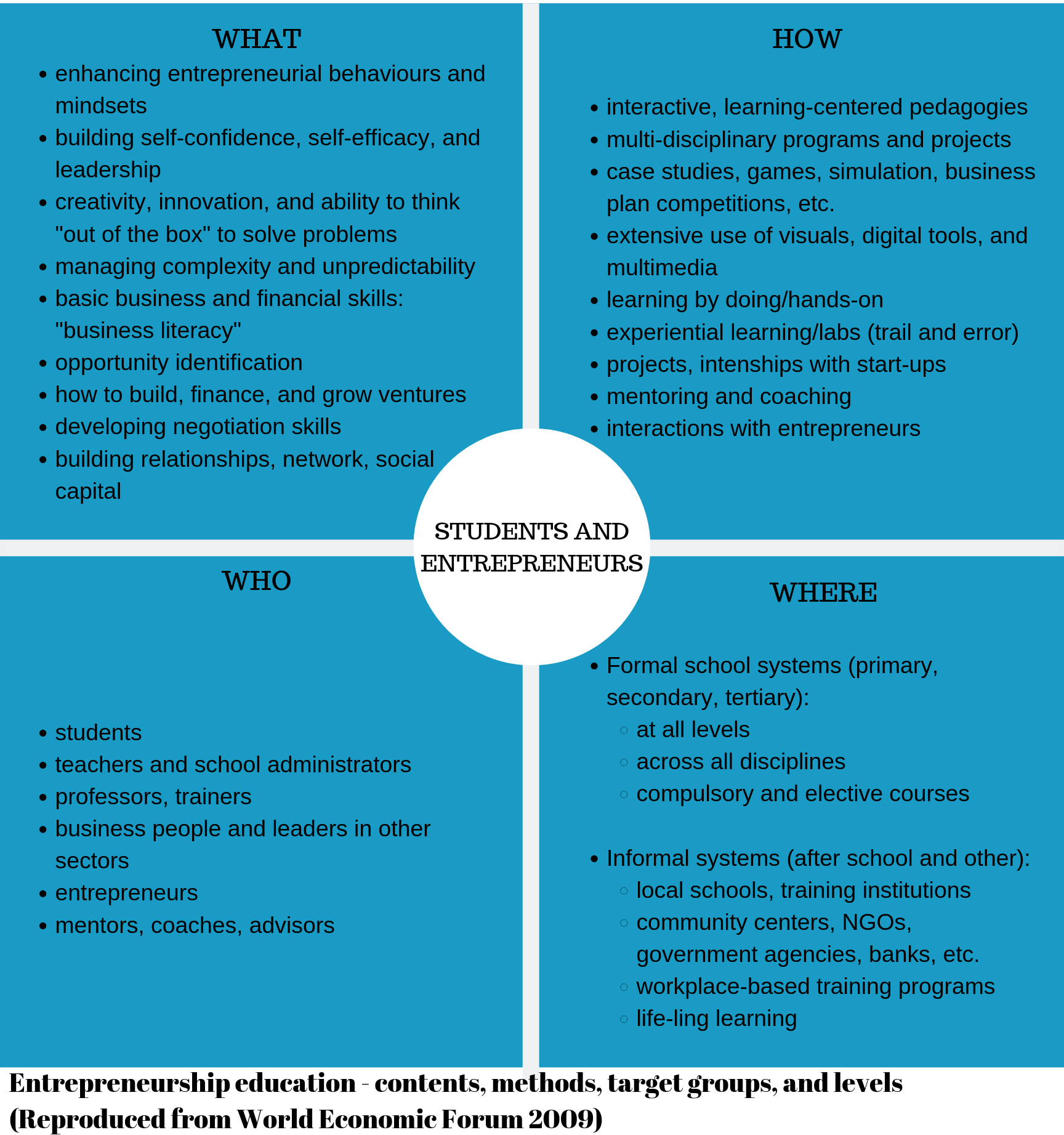Entrepreneurial Skills
“Entrepreneurial education means developing and stimulating general competencies like taking initiative, taking responsibility, turning ideas into action, developing curiosity, relying on oneself, being creative and demonstrating courage for risk-taking. Furthermore, entrepreneurial education should promote competencies like decision-making, communication, and cooperation to seize opportunities and changes, as well as to develop and create value – personal, cultural, social or economic” (Swedish National Agency for Education, 2015).
Human Capital Assets Related to Entrepreneurship
According to Volery at al. (2013), there are four types of human capital related to entrepreneurship:
- entrepreneurship-related personality traits, including the need for achievement, entrepreneurial self-efficacy, the pursuit of professional autonomy, risk propensity and innovation propensity;
- beliefs that support entrepreneurial activity, including the perceived desirability and feasibility of one’s plans and actions;
- entrepreneurial knowledge;
- entrepreneurial competencies.
There are many definitions for entrepreneurial education. While some are very vague and not explanatory (Young, 1997), others focus on specific aspects of entrepreneurship (Kirby, 2004). This can affect how the education takes place and the institutions entrepreneurship is taught in.
Initiatives for entrepreneurship education in university manifest themselves in different forms, such as programs, institutes, centers, departments, and schools. These can depend on the student, educator, institution, community and the relationship among all (Manimala, 2017).
Jamieson (1984) identifies three types of entrepreneurship education:
- Education about enterprise: deals mostly with awareness creation and has the specific objective of educating students on the various aspects of setting up and running a business mostly from a theoretical perspective
- Education for enterprise: deals more with the preparation of aspiring entrepreneurs for a career in self-employment, with the specific objective of encouraging participants to set up and run their own business
- Education in enterprise: deals mainly with management training for established entrepreneurs and focuses on ensuring the growth and future development of the business

REFLECTIVE THINKING VS. ENTREPRENEURIAL THINKING
Reflective practices are crucial for learning and they are especially important in the experiential learning environment (Perry, 2012). As illustrated in the image, reflective thinking starts with the individual and builds up to a broader context. When a student experiences something in their off-campus study program, they will start the reflection from within. The reflective practice then moves to the revisiting of the experience and connecting it to values, beliefs, and assumptions. It is very effective to combine reflection with a pre-program orientation, such as the intercultural orientation (look at IDI on the Study Abroad page).
Through a literature review (Kubberod, 2017; Yamazaka, 2004; Neck et al., 2014), and personal observation, it was concluded that entrepreneurial thinking complements reflective thinking and builds on it. That is, entrepreneurial thinking is the next step to the reflections in off-campus study programs.
It is recommended to not only engage the students seriously in reflective practices (Kubberod, 2017) but also to engage them more into expanding that thinking when looking for solutions.





